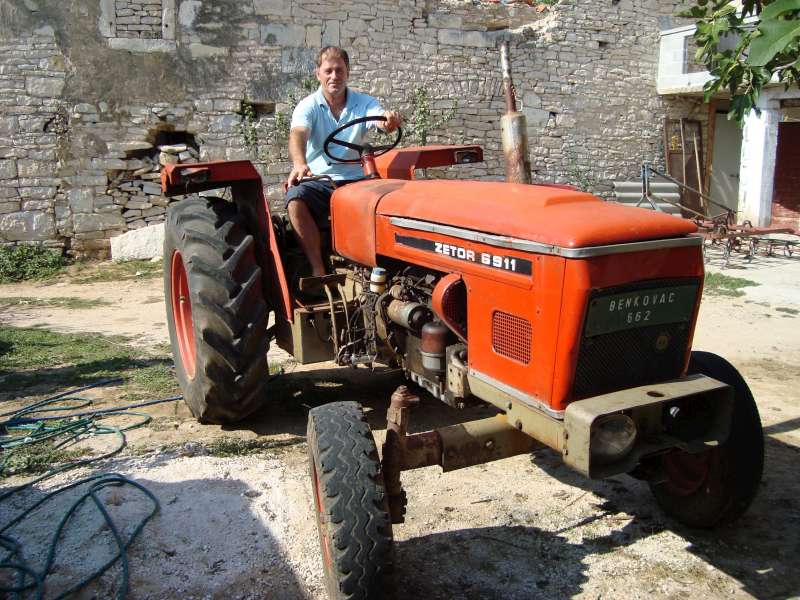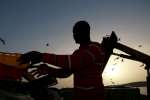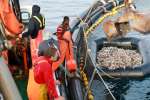- Text size
 |
|  |
|  |
| 
- Français
Fruit and vegetable farmer turns to UNHCR to treat his ailing tractor
News Stories, 2 March 2010
KASIC, Croatia, March 2 (UNHCR) – An ageing, bright red tractor is Nicola Lakic's pride and joy. It took him and his family to safety when they had to flee their Croatian village in 1995 and provided him with a livelihood in exile. When the 52-year-old father of two finally returned home and the vehicle started playing up, he turned to the UN refugee agency for help.
Nicola bought the vintage Czech-made Zetor 6911 in 1981, when he worked as a fruit and vegetable farmer in Kasic, a village located in the hills about 100 kilometres north of the port of Split. He sold his produce to hotels and restaurants serving the busy tourism industry along the Dalmatian coast.
It was hard work, but Nikola, with the help of his faithful tractor, was able to provide his family with a decent standard of living in this fertile agricultural district. But in 1995, the nearby conflict came to Kasic, forcing Nicola and other ethnic Serbs to flee for their lives.
The Lakic family packed their luggage and themselves onto the tractor and drove for 11 days across Bosnia and Herzegovina to the Serbian province of Vojvodina. Because he had a tractor, Nikola was able to earn a living as a farm hand in the largely corn-growing region.
In 2008, the Croatian government renovated war-damaged houses in Kasic and other villages of the Zadar region, which were littered with anti-personnel landmines. Nikola decided to return and rebuild his farming business.
With many other Serbs asking for help to return to Croatia, the UN refugee agency decided to provide transportation for them and their farming equipment – mainly tractors. Nikola hitched a lift home with UNHCR.
But there had been a hidden cost, he explained. "The voyage through Bosnia and ploughing the Vojvodina soil had caused damage to the tractor's engine and when UNHCR helped us back to Kasic, the tractor was already ailing."
Nikola started to restore his fields with the help of his trusty red workhorse, but before long the tractor's sturdy engine broke down after years of service. The braking system also collapsed.
Possessing limited financial resources after planting 200 peach trees, Nikola needed help because he would not start making a return on his investment for four years. He told UNHCR about the problem and the refugee agency "recognized how time was crucial for me and helped." UNHCR agreed to pay for his tractor to be serviced, including repair of the engine and brakes.
"The small returnee population in Kasic faces difficulties in renewing what was once a prosperous agricultural area and in re-establishing trade links" with the once again booming coastal tourism trade, noted Tanja Kale, head of UNHCR's field office in Knin. "UNHCR has demonstrated that with a little help, the situation of these people can change and they can rebuild their lives."
With the support of the government, UNHCR and other organizations, people like Nikola can make a sustainable return. With his tractor back in action, he and his brother are preparing for some heavy field work ahead of spring. And he hopes that his family will be able to join him later this year.
By Dorijan Klasnic in Kasic, Croatia






































